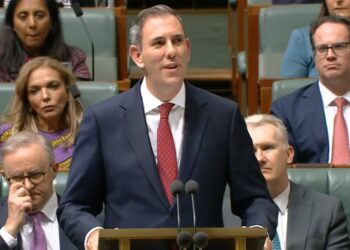During his appearance before a parliamentary committee on Friday (29 November), Macquarie Bank deputy managing director Greg Ward was quizzed about the company’s financial advice business. Specifically, he was asked if planners would meet FASEA’s educational and ethical requirements.
“We have done a lot of work in our private wealth business,” Mr Ward said. “It is a much smaller business than it was a many years ago.”
In 2013, Macquarie had 440 financial advisers. It now has 125 advisers, or “private bankers” as they are known within the group.
“Those private bankers are highly skilled, highly trained and working with typically high-net-worth clients,” Mr Ward said. “Our private bankers are on a salary and profit share system, which is based on the overall service to clients. They don’t get commission on products.”
Mr Ward, who also heads up Macquarie’s banking and financial services division, said clients typically have between $3 million and $5 million in investable assets, often much more, and as a result Macquarie’s private bankers charge a higher fee for service.
“We see hardly any complaints in that business now because of the quality of the advisers and the clients. We can have a much more intimate relationship with them, which lowers the risk of a disconnect with the client,” he said.
Asked whether he believed asset-based fees could work under FASEA’s Code of Ethics, Mr Ward said that they could, depending on the circumstances.
“Asset based fees could be compatible with the FASEA Code of Ethics,” he said. “Typically, we charge our clients a fee for service. Sometimes that is based on the size of the assets we advise on. Typically, the larger portfolio balances incur higher fees, but not always. There are occasions where an asset-based advice fee is a proxy. But we look at it as a fee for service.”
FASEA Code of Ethics Standard 3 states that planners “must not advise, refer or act in any other manner where they could have a conflict of interest or duty”.
Under ‘Other sources of variable income’, the code states that advisers will breach Standard 3 “if a disinterested person, in possession of all the facts, might reasonably conclude that the form of variable income (e.g. brokerage fees, asset based fees or commissions) could induce an adviser to act in a manner inconsistent with the best interests of the client or the other provisions of the code”.




Asset based fee – Great – but WHAT ARE YOU PAYING FOR??? The advisor is simply setting you up on their APL. Why should a client pay $ 5,000 per year in ongoing fee as an ASSET FEE. WHAT ARE THEY PAYING FOR?
More like $20,000 per year….it’s Macquarie.
Disagree! You obviously have not managed a portfolio much !!
Whether it be flat or percentage based, a fee will almost serve the client’s interest better than would a commission.
There are many cases when commissions are much better for clients. Any client who ends up with good insurance advice and cover thanks to commissions reducing their upfront cost, is better off than a client who ends up with junk insurance or no insurance due to an unwillingness to pay the extra upfront cost of insurance advice fees.
In an ideal world all consumers would be willing to pay the extra costs of upfront advice in order to save some premium in the long run. But in the real world only a tiny proportion of consumers are willing to do so. Nudging the majority of consumers towards junk insurance or no insurance through dogmatic banning of commissions, is contrary to those consumers’ best interests.
Amazing how a flat fee miraculously doesn’t equate to being a percentage fee of funds under management (even though logic says it must). It’s almost like mathematics doesn’t exist….lol. They are all charging approx 0.55% to 0.7% pa of FUM, even as a dollar based fee.
Our practice will most definitely continue to charge asset based fees where funds are under ongoing advice.
A flat fee is simply unethical. Why should lower balance clients pay more as a % than higher balance clients? They are effectively subsidising the professional risk premium an adviser would charge of rich people.
If you aren’t charging a risk adjusted fee you are doing your clients a disservice.
All remuneration is conflicted.
Asset based fees are the only remuneration that compensates the risk and adviser takes in giving advice. If it goes wrong the client will not sue you for less because you charged a flat fee.
Dealing with Wholesale/Professional/ Sophisticated Investors is a completely different game.
again, why is the government listening to a bank executive when they won’t listen to advisers??
it because they have $$$$$$ to influence ethical politicians
There is nothing wrong with Asset based fees. This is especially true in the long term when you have clients retiring on a pension or if due to lump sum withdrawals the investment balance decreases. If the same % fee varies with the client portfolio balance both up and down it will naturally vary with the balance such that over time as a clients portfolio reduces in pension phase especially as the client ages and the min % that has to be paid increases with age, the fees charged will reduce. This is far more equitable than a set fe for service which is probably indexed to CPI so that over time it actually becomes much more expensive as it becomes a greater and greater % of the remaining balance. Also if an adviser / manager is getting the client better returns after fees the fixation with fees becomes irrelevant – it is not the amount of the fees but the net after tax return to the client that is important. A long term average 12% return after tax and net of total Adviser, Manager, & Platform fees of say 2.5% are much better than a return of say 10% after 1.5% in fees, especially when you then take into account the 15% tax on accumulation funds the 10% crediting rate promoted by some funds become 8.5% when tax is taken into account!
Who or what is a disinterested person ? It couldn’t be a client who has sought advice. The “Other sources of variable income” paragraph, is a nonsense on every level. It needs to be removed and FASEA need to clarify in full, whether asset based fees and/or risk comms are banned as a result of Standard 3. Why this is not happening is beyond me.
BELIEF AND REALITY ARE 2 DIFFERENT THINGS. BEST OF LUCK WITH THAT ONE
MacQuarie’s financial planning business will be the template for ALL Financial Planners in the coming years… HIGH FEES for a SELECT FEW.. IGNORE everyone with less than $3M… FEWER clients. If you don’t pay high fees then you are on your own!
Well done Politicians, Media and Regulators on transforming the Australian Financial Services industry to a service for those who have plenty of money and palming off everyone else to a General Advice model.
Just remember, only 1 question needs to be answered by everyone in the madness of relentless reform… “How will Australians be better off as a result of the reforms?”
Great so the banks can get away with charging a percentage based fee, but IFA’s will go to the wall unless they magically shift their client base over to a flat fee in less than a month. Well done FASEA. You have protected the banks who funded you, and will destroy their competition, all under the disguise of ‘ethics’. Mission accomplished
Flat fees are conflicted too. Nothing in the Corps Act or FASEA Code distinguishes between asset based fees and flat fees.
Asset based fees are conflicted remuneration. So are flat fees for service. So are LIF compliant insurance commissions. However all these remuneration types are specifically excluded from the conflicted remuneration ban within the Corps Act (except asset based fees on borrowed funds). All are therefore excluded from FASEA Standard 7 as well.
But FASEA Standard 3 makes no exception for remuneration type. Standard 3 says all conflicts must be avoided. Asset based fees, flat fee for service, LIF compliant commissions, and all other forms of remuneration are not allowable under Standard 3, because all forms of remuneration are conflicted.
Good to see them making changes. How will Standard 7 impact their advisers regarding fair and reasonable advice fees. Are the fees capped? SoA’s I saw a couple of years ago they were heavily discounting Mac Wrap product fees therefore making it look very competitive when compared to any other products, (super switching made easy) but then massively over inflating the in house advice fee, of which Mac Bank takes 50%. The code doesn’t apply to product manufacturers and there is a specific carve out for in house advisers.